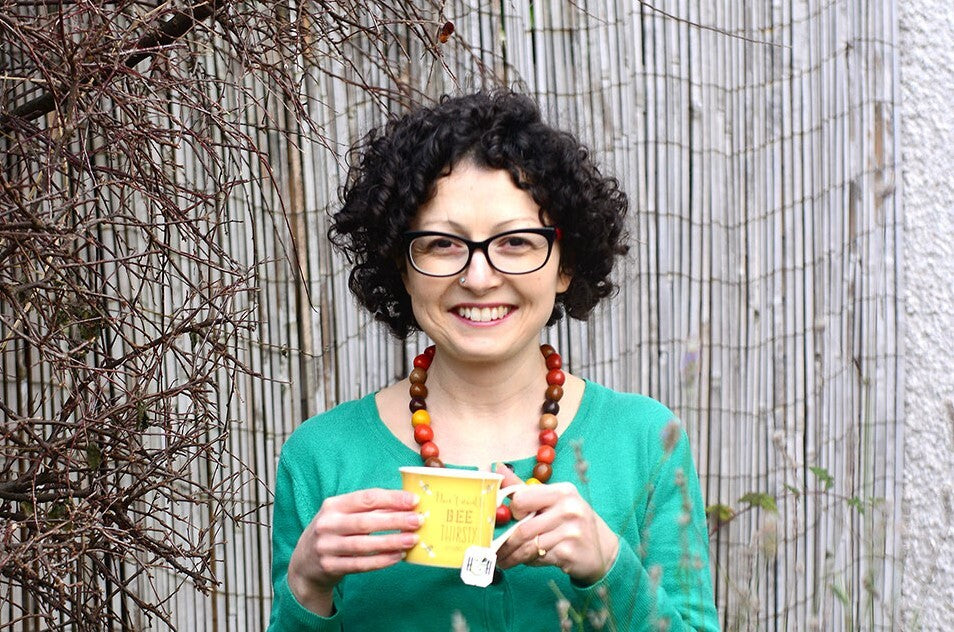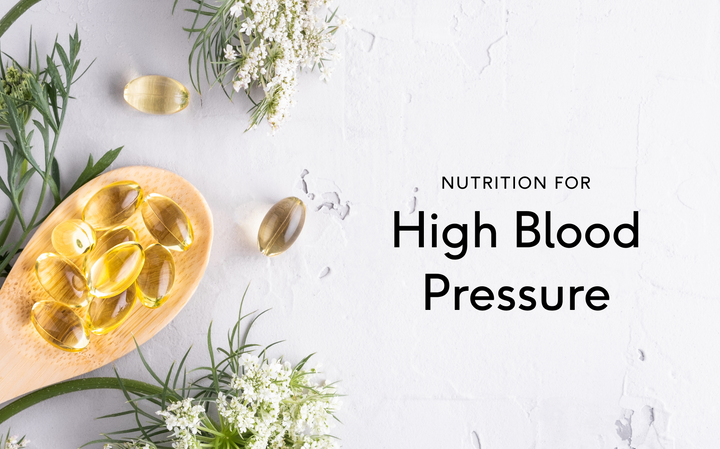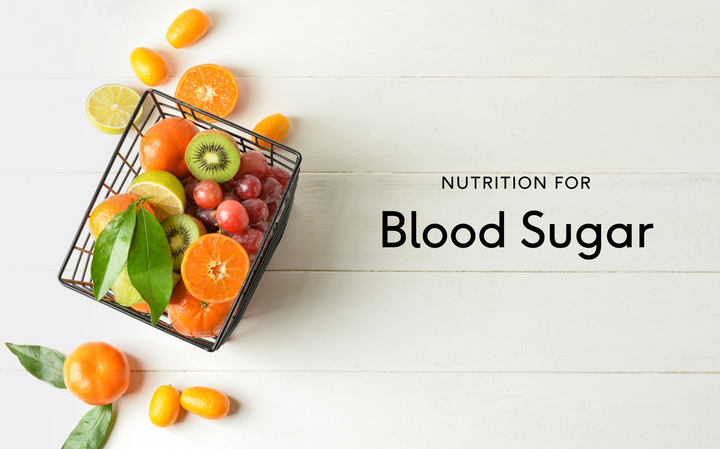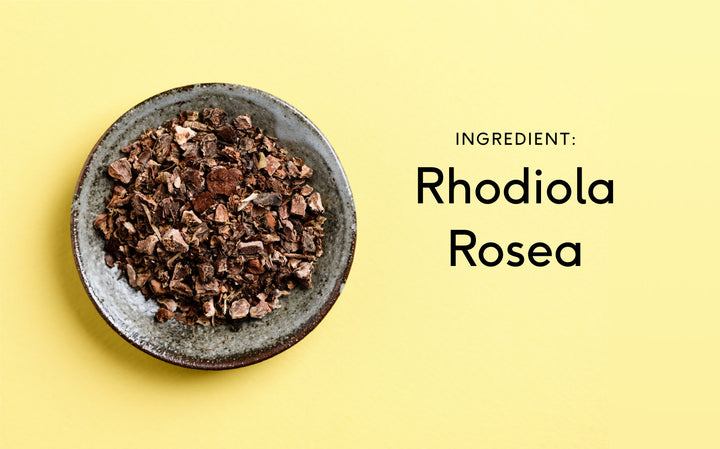Best Vitamins and Minerals for Acne Skin [2025 Nutritionist Reviewed]
Fiona holds an MSc in Nutritional Medicine and a qualification in Nutritional Therapy. Fiona specialises in skin health and is also the author of the acclaimed book, The Happy Skin Solution.
Fiona holds an MSc in Nutritional Medicine and a qualification in Nutritional Therapy. Fiona specialises in skin health and is also the author of the acclaimed book, The Happy Skin Solution.
Table of contents
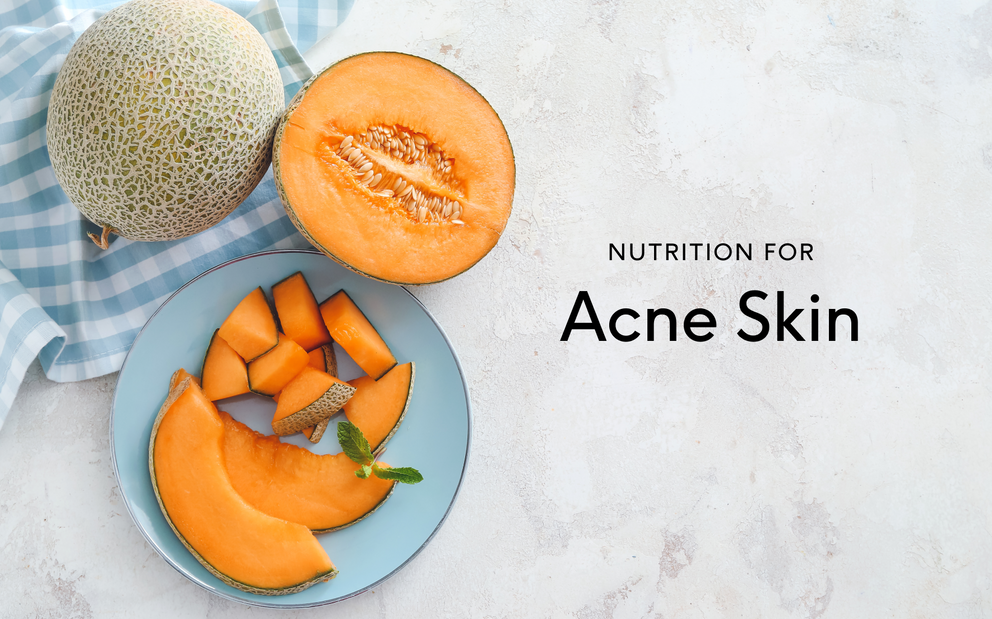
| Symptoms associated with Acne | Red, painful, and inflamed skin lesions commonly found on the face. They may be in the form of blackheads, whiteheads, papules, pustules, nodules, or cysts. |
| Factors that may cause Acne | Excess oil production, irregular skin cell turnover, imbalanced skin bacteria, inflammation, diet, genetics, hormonal imbalance, pregnancy, medical conditions, stress, poor skin hygiene. |
| What Vitamins can help Acne | Vitamin A, Vitamin E, Vitamin C, Vitamin D, Niacin, Vitamin B6. |
| What Minerals can help Acne | Zinc, Chromium |
| What additional ingredients or botanicals can help Acne | Aloe Vera, Green Tea, Astaxanthin, Ashwagandha, Probiotics, Omega-3 |
| How long do vitamins and minerals take to work? | It depends on the individual but within 3 months you should notice the benefits. |
1. What is Acne?
Acne vulgaris, more commonly known simply as Acne, is characterised by red, painful and inflamed skin lesions1. These lesions, which you might call spots or pimples, may come in the form of blackheads, whiteheads, papules, pustules, nodules, or cysts2. Quality of life for Acne sufferers is impacted not only by the physical pain but also by Acne’s impact on self-esteem, since blemishes occur mainly on the face3.
If you suffer from this skin disease, be rest assured you are not alone. Acne is incredibly common in the Western world, particularly amongst adolescents: up to a whopping 85% of teens suffer with it4. Most will outgrow the condition but not all: over half of adults over 25 years old have some degree of facial Acne, and for 12% of men the condition will last into middle-age4. For others, the impact of Acne on self-esteem and quality of life may be felt into adulthood due to potential Acne scarring3.
Some adult women also suffer from what is sometimes referred to as “hormonal Acne”, where Acne breakouts seem to occur around the menstrual cycle, during pregnancy or menopause, or as a result of polycystic ovary syndrome (PCOS)2,5.

2. Why does Acne occur?
We don’t know the exact pathophysiology of Acne, but four key factors contribute to Acne’s development:
1. Excess oil (sebum) production
2. Irregular skin cell turnover
3. Imbalanced skin bacteria
4. Inflammation
Scientists aren’t sure which factor starts the process. They used to think that an overgrowth of the Cutibacterium Acnes bacterium was the key culprit, but newer research suggests that underlying inflammation may be the instigating factor 4,6.
Whatever starts it off, why does it happen? And why is it so prevalent during puberty? Genetics do play a part: you are more likely to have Acne-prone skin if your mother or father had Acne4,7,8. But there are many other factors at play. These factors could be environmental, hormonal, related to the skincare cosmetics you use, to do with your stress levels, or the food you eat7.
Skincare regime
Simple changes that may help include, limiting washing your face to no more than once per day, ideally in the evening using a mild cleanser and lukewarm water2. Although using creams or moisturizers may feel counter-intuitive if you have oily skin, this may actually help your Acne9. Speak to your dermatologist to find out about Acne-friendly creams, which may be available over-the-counter.
Diet and hormones
Androgens are hormones that increase during puberty, and increased androgen levels can lead to increased or altered sebum production, which could lead to an Acne breakout4,7.
A condition called hyperinsulinemia can raise levels of androgen. This is where we have an excessive amount of insulin - the hormone that regulates blood sugar levels - in the blood. It is usually caused by eating a diet with a high glycaemic load - that’s foods like processed carbohydrates and sugary snacks which release sugar into the blood more quickly than other foods.
Hyperinsulinemia increases another hormone, called insulin like growth factor 1, or IGF-1. This hormone promotes growth of tissues and can contribute to the thickening of the skin, which can increase the chances of an Acne breakout4.
Milk and dairy products also increase levels of IGF-1 in the body10.
Typical Western Diet
According to the NHS, there is not enough current evidence to advise dietary changes for the treatment of Acne2. However, the British Association of Dermatologist’s position is that diet does appear to be related to Acne. What’s really interesting is that, while Acne is incredibly common amongst teenagers of the Western world, it has been found to be almost unheard of in certain civilizations not yet influenced by Western culture. A number of examples have documented this, from pre-World War II Okinawa, to the Bantus of South Africa and Peruvian Indians4. It might be proposed that this difference comes down to genetics but we can see that diet plays a crucial part when we study indigenous populations who have transitioned into a Western society. Inuit people in Canada for example were found to have very low rates of Acne while eating their traditional diet, but the prevalence grew as they transitioned into modern society and started to eat a more typical Western diet4.
A typical Western diet tends to have a high-glycaemic load from high amounts of processed carbohydrates, and this has been found to be particularly true amongst Acne patients, whose diets have also been found to be low in vegetables and fruits. Westerners also tend to have a high dairy intake, which has been associated with an increased risk of Acne8.
The diets of populations unaffected by Acne on the other hand, tend to be devoid of processed food, contain very little or no dairy, and are rich in low glycaemic carbohydrates from vegetables, fruits and whole grains4, which provide lots of beneficial nutrients for skin health and general wellness.
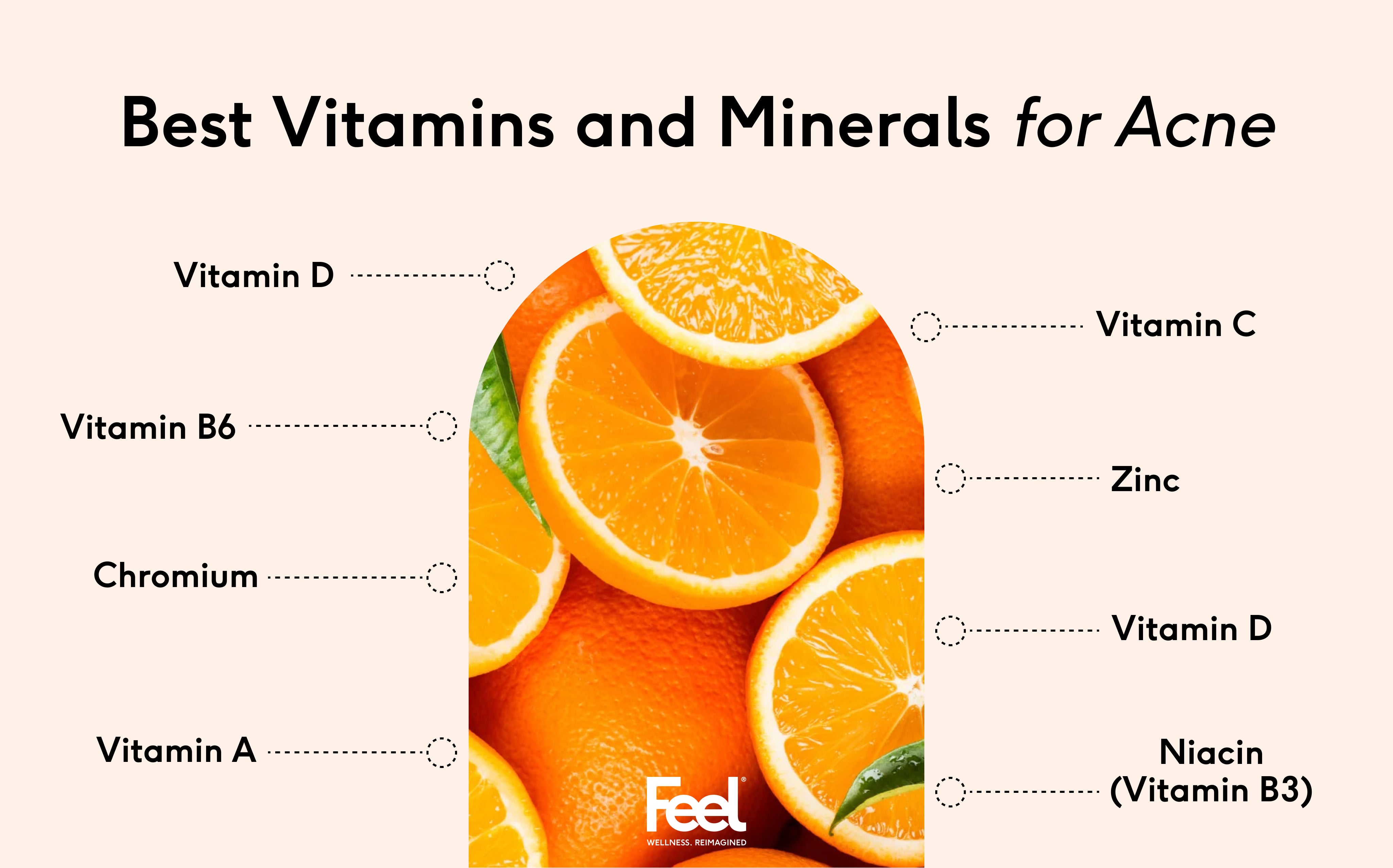
3. What nutrients help with Acne?
Various nutrients have been found to be low in individuals with Acne, suggesting that supplementation of these nutrients may be beneficial in the treatment of Acne. Therapeutic doses of other nutrients (even if a person isn’t deficient in them) have been found to be helpful too.
Zinc
Zinc plays a role in maintaining the immune system, reducing inflammation, and modulating hormones like androgens12. 6% of this essential mineral is stored on our skin12, and deficiency can cause skin health problems. Acne patients have been found to have lower blood levels of Zinc, especially in severe cases, and studies dating back to the 1960’s have found beneficial effects of zinc supplementation in the treatment of Acne11. Topical Zinc sulphate has been effective in the treatment of mild to moderate Acne and orally Zinc may be beneficial in moderate to severe Acne12. It may also help to reduce the possible adverse effects of antibiotics, which are frequently prescribed for the disease12.
Dietary sources of Zinc include meat and fish, and fortified foods13; pumpkin seeds are a good option for vegetarians or vegans. Male teenagers between 14-18 years old should have 9.5mg of Zinc daily, females of the same age should have 7mg.
Vitamin A
Vitamin A is an essential vitamin and antioxidant which plays a role in the immune system, inflammatory response, and skin integrity. Individuals with Acne have been found to have lower blood levels of Vitamin A, and low levels are thought to contribute to skin flaking and the prolonging of an Acne breakout11.
Vitamin A is actually a group of fat-soluble retinoids 14. When consumed in the diet, it comes in two forms: preformed vitamin A, in the form of retinols, which we obtain through eating dairy, eggs, fish and organ meats; and provitamin A carotenoids from plants14, especially orange-coloured vegetables like carrots, sweet potato and squash.
Vitamin A is used medically in dermatology with good results6. In fact, if your doctor has given you medication for treatment of Acne, it may have been a form of Vitamin A. Isotretinoin, also known as 13-cis-retinoic acid, is a derivative of Vitamin A, and has been found to be beneficial in Acne by reducing sebum secretion, thereby modulating the bacteria which promotes inflammation in Acne11.
Vitamin E
Vitamin E is an important antioxidant, known to protect cell membranes from free-radicals, and again plays a role in the immune system. Similarly, low levels have been detected in individuals with Acne, particularly in cases of severe Acne11. Green leafy vegetables, nuts, seeds and whole grains are good sources of this essential vitamin.
Vitamin D
Vitamin D plays an important role in the immune system and mediation of inflammation: influencing factors in Acne1. Deficiency has been found to be more common in individuals with Acne.
We obtain most of our Vitamin D through exposure to the sun during summer months, but we can also increase our levels through consumption of fish, mushrooms or eggs, or through supplementation15. The recommended daily amount of Vitamin D for teens and adults in the UK is 400 IU daily.
Niacinamide (Vitamin B3)
Niacinamide, also known as nicotinamide or Vitamin B3, is a vitamin with strong anti-inflammatory properties, which is thought may be useful in the treatment of Acne16. A review of studies found that oral supplements containing niacinamide lead to a significant reduction in Acne; the studies using topical Niacinamide also led to a significant improvement or had a similar effect to standard Acne treatments16.
Meat and fish are the best dietary sources of this vitamin; nuts, legumes and grains can provide a plant-based source17. Teenagers age 14-18 should have 18mg daily for males or 14mg daily for females.
Omega 3 fatty acids
Omega 3 is a group of essential fatty acids found mainly in oily fish. Their main role is to mediate the inflammatory response in the body. Populations that eat high amounts of oily fish have been found to have low levels of Acne1. Omega 3 supplements, in the form of fish oil, or a vegan equivalent like Feel’s Vegan Omega 3 from algae, have anti-inflammatory properties and have been found to reduce the severity of Acne in those suffering from moderate to severe Acne1.
Probiotics
Probiotics may also be beneficial in the treatment of Acne as they can help to support the healthy bacteria residing in our guts. Good gut health is essential for healthy skin and there is a link between the levels of good bacteria in the gut and Acne18. The lactobacillus genus in particular has been found to promote good skin health, and a Korean study found that the probiotic species, lactobacillus paraplantarum may be an effective treatment for Acne vulgaris6.
4. What Vitamins are good for hormonal Acne?
B Vitamins
B vitamins are required by the body to support the liver in detoxifying hormones. Certain B vitamins may be of particular benefit: B2 (riboflavin) helps the body absorb zinc, while B6 (pyridoxine) has been found to be beneficial for hormone health, supporting PMS19. For these reasons some women find a B complex helpful in the management of hormonal issues like PMS20.
5. What minerals are good for hormonal Acne?
Chromium
An essential mineral which plays a role in the regulation of insulin21, which for the reasons discussed above could help to fight Acne.
Zinc
The mineral Zinc could be of particular benefit to Acne triggered by hormones due to its role in modulating androgen hormones and soothing inflammation12.

6. What botanicals can help with Acne?
Aloe Vera
An ingredient used in many over-the-counter moisturisers, said to be beneficial for Acne due to its antibacterial and anti-inflammatory properties. Studies have backed this up, finding good results for creams containing the plant in combatting Acne22,23.
Astaxanthin
Astaxanthin is a carotenoid and a powerful antioxidant with anti-inflammatory properties24. It has been shown to have beneficial effects on skin health when used topically or orally, including by reducing oiliness of the skin24.
Green Tea Extract
Green tea is well known for its health-promoting benefits, mostly due to its antioxidant status. But did you know that studies have found it may also be beneficial in the fight against Acne? A review of trials found that topical application of green tea extract significantly reduced inflammatory Acne lesions without any adverse effects25.
Ashwagandha
Ashwagandha is an Indian apoptogenic herb with antioxidant and anti-inflammatory effects, traditionally used to help combat stress and anxiety, and studies back up this claim26. These beneficial properties of the herb could all be seen to be helpful for Acne sufferers, especially considering the prevalence of anxiety and depression amongst people with the condition27.
7. What vitamins can cause Acne?
You might have read reports that taking vitamin B12 supplements can cause an Acne breakout, and there have indeed been some cases of this. A 37-year-old woman with no previous history of Acne, developed Acne lesions after two B12 injections28, and a teenage girl in Germany, with previous low-level Acne, suffered an extreme eruption of facial lesions after taking high doses of Vitamins B6 and B12 for two weeks29. A review of cases found other incidents of women having Acne eruptions following high B12 supplementation30 and vitamins B2 and B6 have been found to potentially exacerbate Acne29.
It’s important to note that doses of nutrients taken in these cases were very high. The German teen was taking 80mg of B6 and 20mcg of B12 daily, considerably higher than the recommended daily amounts, and the amount of B6 was the same as the very upper limit for her age group (14-18 year olds) according to the American Institute of Health31.
Vitamins are generally beneficial to our health but upper tolerable limits have been set for many nutrients to guide us in the maximum amount that can be taken before adverse effects might be seen. It should also be noted that it is very difficult to take too much of a vitamin when we obtain it through the diet, these cases were linked to supplemental intake. You shouldn’t be put off taking supplements, though. Remember B12 is important to supplement in sensible doses if you are vegetarian or vegan.
Whey Protein
Whey protein, a popular supplement amongst bodybuilders, has also been linked to the development of Acne. A Belgian dermatologist reported a number of cases of healthy males developing moderate to severe cases of facial Acne after whey protein consumption, which cleared on its cessation7. Whey protein is naturally found in milk and may lead to increased levels of IGF-1 and insulin, which was thought to be the reason for the Acne breakout in these individuals7.
8. Can vitamins help with Acne scars?
Even after Acne lesions have been resolved, Acne scarring can continue to affect lives through poor self-esteem, particularly as most scars are on the face. Vitamin C has been found to have a potential benefit when used topically for Acne scarring. In one study, it was found to have better results than collagen induction therapy3.
9. When is best to take vitamins for Acne?
To maximise your chances of enjoying clear skin, you should aim to have a healthy, nutrient dense diet all the time, rather than waiting for an Acne breakout.
10. How long do I have to take vitamins for Acne?
It’s a good idea to ensure you are meeting the recommended daily requirements of vitamins and minerals, not only to help your Acne but also for all other areas of health and wellbeing, and to protect you from future health issues. Getting all the nutrients you need through your diet, is always preferable to taking a pill, but you might want to top up your levels with a good quality multivitamin too. While taking very high doses of some supplements for a long time may have side-effects, it’s generally considered safe to take a multivitamin long term.
11. Can vitamin deficiency cause Acne?
Vitamin deficiencies can play a role in the development of skin conditions including Acne. As we have seen, people suffering from Acne have been found to have lower levels certain vitamins compared to other people, including Vitamins A, E, and D, as well as Zinc and Omega 3 fatty acids1,11.
12. What vitamins should I take to prevent Acne?
Several vitamins and minerals have been found to be beneficial in fighting Acne. However it is best not to focus solely on just one nutrient, but to take them in a balanced form, for example by taking a good quality multivitamin supplement like Feel’s Multivitamin for overall wellness as well as skin health, is a smart choice, as is Feel’s Skin Care which contains a combination of beneficial vitamins and botanicals specifically formulated to promote clearer skin. Combine either of these with our Beauty Probiotic + to support your gut, encouraging healthy skin from the outside in.
And don’t forget that supplements shouldn’t be a substitute for a healthy diet which will also support skin health and feelings of wellness.
A balanced diet not only increases nutrient status, but also a low glycaemic load diet may be beneficial in the treatment of Acne by maintaining insulin sensitivity. A healthy diet low in processed carbohydrates and high in vegetables will also promote good gut health, which in turn helps our supply of B vitamins in the body since some of these are synthesised in the gut.

13. How long does it take for vitamins to work for Acne?
If you have started taking vitamin supplements to help with your Acne, it’s important to allow time for them to work. Acne Support recommend taking treatments for 12 weeks before you are likely to see a difference32, and don’t forget they’ll need to be taken on a regular basis, which typically means every day.
14. Possible side-effects of taking vitamins for Acne?
Taking vitamin or mineral supplements in high doses can lead to side-effects. Vitamin A in particular is known to come with potential side-effects including potential liver damage, digestive issues and skin irritation and dryness. Taking vitamins in a balanced form like in Feel’s multivitamin reduces the risk of side-effects.
Obtaining vitamins through a healthy, balanced diet is a safe way to increase your nutrient status without risking side-effects.
References
- https://www.ncbi.nlm.nih.gov/pmc/articles/PMC3543297/
- https://www.nhs.uk/conditions/Acne/#overview
- https://www.ncbi.nlm.nih.gov/pmc/articles/PMC4338464/
- https://www.ncbi.nlm.nih.gov/pmc/articles/PMC4769025/
- https://www.ncbi.nlm.nih.gov/pmc/articles/PMC6360964
- https://www.ncbi.nlm.nih.gov/pmc/articles/PMC3780801
- https://pubmed.ncbi.nlm.nih.gov/23257731/
- https://pubmed.ncbi.nlm.nih.gov/22386050/
- https://www.ncbi.nlm.nih.gov/pmc/articles/PMC3997205/
- https://pubmed.ncbi.nlm.nih.gov/31089868/
- https://pubmed.ncbi.nlm.nih.gov/23826827/
- https://www.ncbi.nlm.nih.gov/pmc/articles/PMC4120804/
- https://ods.od.nih.gov/factsheets/Zinc-HealthProfessional
- https://ods.od.nih.gov/factsheets/Vitamina-HealthProfessional/
- https://ods.od.nih.gov/factsheets/VitaminD-HealthProfessional/
- https://pubmed.ncbi.nlm.nih.gov/28220628/
- https://ods.od.nih.gov/factsheets/Niacin-HealthProfessional/
- https://pubmed.ncbi.nlm.nih.gov/35330173/
- https://pubmed.ncbi.nlm.nih.gov/10334745/
- https://acudoc.com/Premenstrual_Syndrome.PDF
- https://pubmed.ncbi.nlm.nih.gov/15208835/
- https://www.sciencedirect.com/science/article/abs/pii/S0962456203001413
- https://www.ncbi.nlm.nih.gov/pmc/articles/PMC6298394/
- https://pubmed.ncbi.nlm.nih.gov/22428137/
- https://onlinelibrary.wiley.com/doi/epdf/10.1002/ptr.6809
- https://www.ncbi.nlm.nih.gov/pmc/articles/PMC3573577/
- https://www.ncbi.nlm.nih.gov/pmc/articles/PMC3051295/
- https://pubmed.ncbi.nlm.nih.gov/23815241/
- https://pubmed.ncbi.nlm.nih.gov/11763399/
- https://pubmed.ncbi.nlm.nih.gov/28594082/
- https://ods.od.nih.gov/factsheets/VitaminB6-Consumer/
Recommended products




















































 Back
Back










